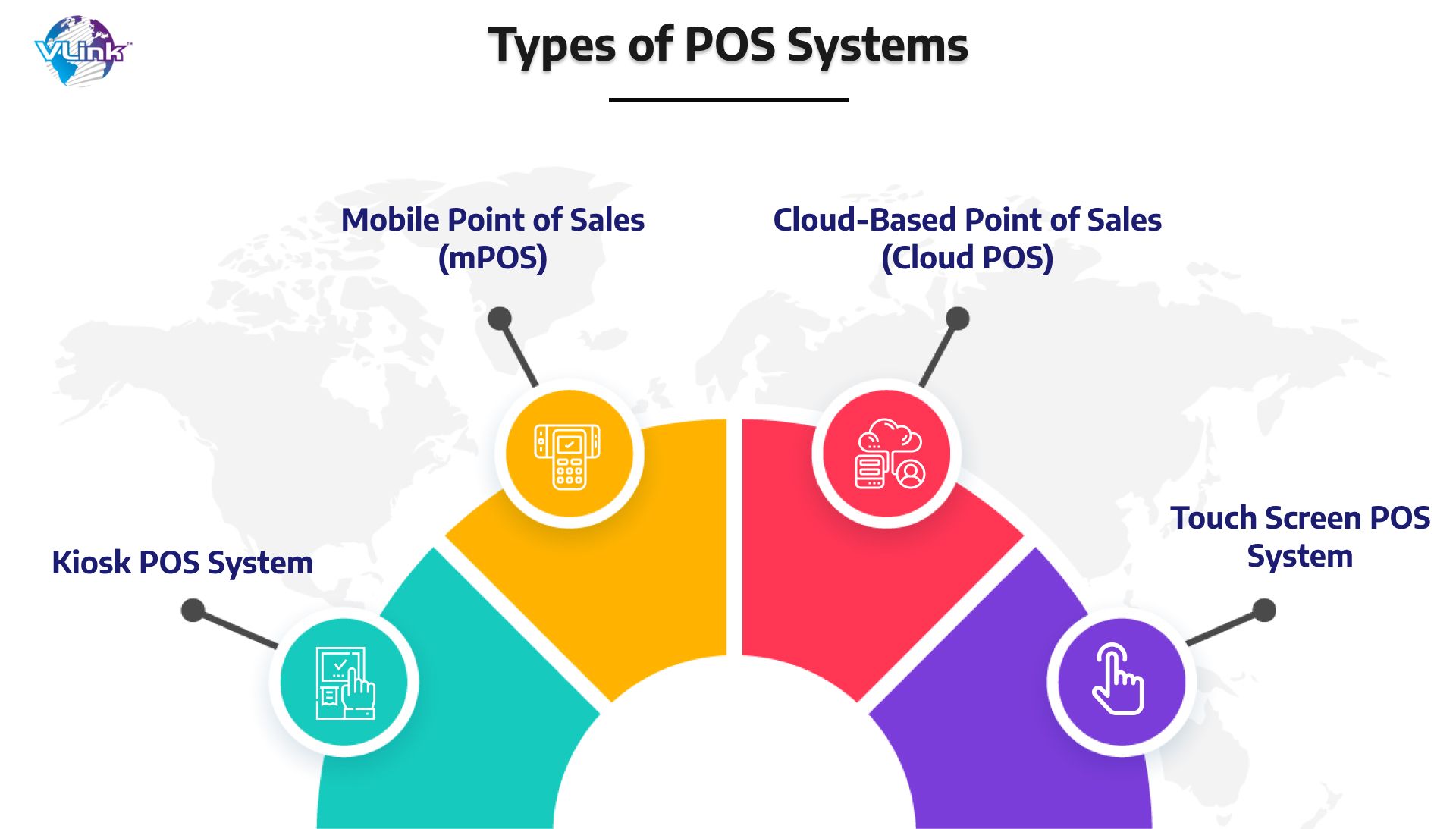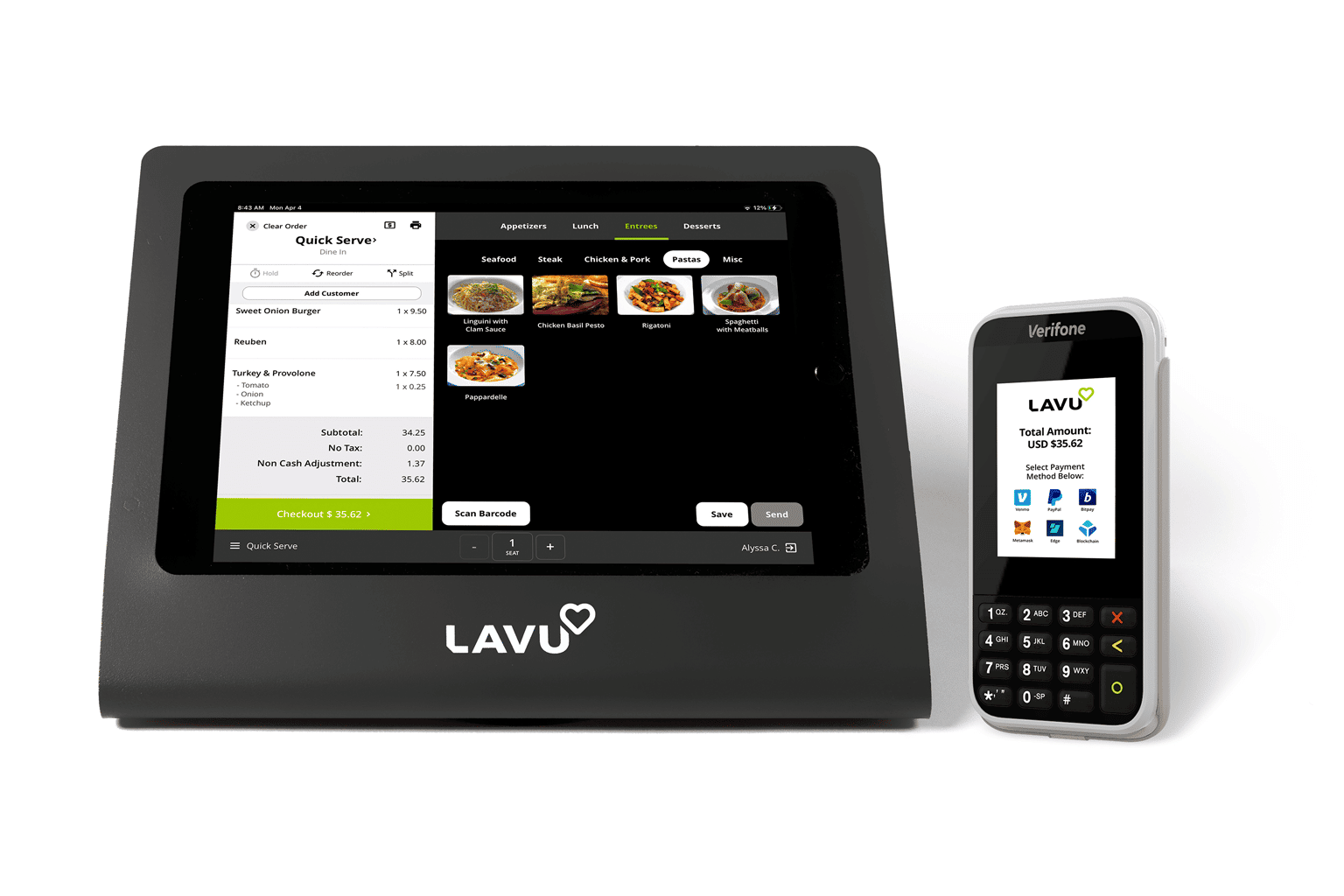Comprehending the Significance of POS Software in Modern Retail Workflow
In today's retail landscape, the duty of POS software program has come to be increasingly considerable. These systems have changed from fundamental cash signs up to complex tools that improve various elements of procedures. They not just streamline deals but additionally supply insights that can shape business strategies. Recognizing exactly how these systems effect customer experience and stock management is necessary for any type of store looking for to remain affordable. The effects of these improvements warrant additional expedition.
The Evolution of POS Software: From Deal Processing to Comprehensive Solutions
As retail environments progressed, so too did the performance of Factor of Sale (POS) software, which changed from basic purchase handling systems to sophisticated, all-inclusive options. Originally, POS systems largely handled sales transactions, handling cash money registers and printing invoices. Nevertheless, with advancements in modern technology, these systems started integrating inventory administration, consumer partnership management, and sales analytics. Sellers recognized the need for real-time information and smooth operations, prompting the development of cloud-based POS solutions that enabled remote gain access to and enhanced scalability.Additionally, the surge of mobile commerce required POS systems to adjust, allowing purchases via tablets and smart devices. This improvement not just streamlined operations however also improved reporting capabilities, allowing retailers to make enlightened choices based upon comprehensive information insights. Consequently, modern POS software has ended up being important to retail approach, functioning as a multifunctional tool that sustains different functional aspects past plain deal processing.
Enhancing Customer Experience Through Advanced POS Features
While numerous sellers focus on operational efficiency, advanced POS functions progressively prioritize enhancing the customer experience. Modern POS systems currently use functionalities such as mobile repayment alternatives, customized promotions, and consumer commitment programs, which cultivate a more appealing purchasing atmosphere. By simplifying the check out procedure, these systems minimize wait times, enabling customers to complete purchases swiftly and efficiently.Additionally, incorporated client partnership monitoring (CRM) features allow sellers to track acquiring habits and choices, promoting customized advertising and marketing efforts. This personalization not only constructs client commitment yet likewise enhances total satisfaction.Moreover, progressed analytics given by POS systems can assist sellers understand client patterns and preferences, enabling them to make informed decisions about product offerings and store designs. Eventually, the emphasis on client experience with sophisticated POS includes not just fulfills modern consumer assumptions however likewise drives repeat organization and increases income for sellers.
Enhancing Stock Monitoring With Integrated POS Equipments
Integrated POS systems play a crucial duty in improving inventory management by automating processes that traditionally required substantial hand-operated initiative (Restaurant POS Software). These systems enable stores to track stock degrees in genuine time, removing discrepancies that commonly occur from hands-on stock matters. With attributes such as barcode scanning and automated supply replenishment signals, companies can preserve ideal inventory levels without overstocking or stockouts.Furthermore, integrated POS systems assist in precise forecasting by assessing historic sales information, allowing merchants to make informed buying decisions. This predictive capability assists businesses adjust to altering customer demands and seasonal fads much more effectively.Additionally, the centralization of stock data across multiple sales networks improves presence, making it possible for retailers to handle their stock much more effectively. Inevitably, the assimilation of POS systems right into stock monitoring simplifies procedures, lowers human error, and contributes to enhanced profitability
Real-Time Sales Tracking and Reporting for Informed Decision-Making
Precise supply administration prepares for efficient sales monitoring and reporting. Real-time sales tracking allows retailers to keep track of sales performance as it happens, supplying prompt insights right into client getting patterns and fads. This capability allows services to react swiftly to variations sought after, optimizing supply degrees and minimizing overstock or stockouts.Moreover, incorporated POS systems promote the generation of thorough records, highlighting essential metrics such as sales by classification, time periods, and individual items. Such reporting capacities equip retailers to make data-driven choices, determining effective strategies and locations requiring improvement.

The Duty of POS Software in Client Relationship Administration
POS software program plays a crucial duty in improving customer relationship management by making it possible for retailers to execute customized advertising and marketing techniques. By analyzing customer data, organizations can customize promotions and interactions to fulfill specific preferences. In addition, these systems promote the development of enhanced commitment programs that urge repeat service and strengthen consumer interaction.
Personalized Advertising Strategies
As retailers increasingly look for to boost customer commitment and engagement, customized advertising methods have emerged as a vital element of effective consumer partnership management. POS software plays an essential duty in this process by examining and collecting consumer information, making it possible for sellers to tailor marketing efforts to individual preferences and purchasing actions. By leveraging insights from purchase histories, retailers can develop targeted promos and individualized interactions that resonate with clients, fostering a deeper connection. Furthermore, the combination of POS software with client connection administration systems permits seamless tracking of client communications, making sure that advertising and marketing techniques continue to be relevant and prompt. This data-driven strategy not just improves client contentment however likewise drives sales and encourages repeat organization, strengthening the retailer's market setting.
Improved Loyalty Programs
Sellers are increasingly recognizing the relevance of loyalty programs in promoting lasting customer partnerships and boosting total involvement. POS software application plays a necessary role in the development and management of these programs, allowing stores to track customer actions, acquisitions, and preferences properly. By leveraging information analytics, organizations can create tailored incentives and incentives that resonate with specific consumers, thereby raising participation in commitment programs. Additionally, POS systems make it possible for smooth combination with digital platforms and mobile apps, assisting in easy access to promotions and incentives. This not only enhances customer complete satisfaction yet additionally drives repeat service. Inevitably, POS software application empowers merchants to cultivate deeper links with their clients, changing periodic shoppers right into loyal patrons through targeted and significant interaction approaches.
Incorporating POS Solutions With E-Commerce Operating Systems for Omnichannel Success
To achieve real omnichannel success, smooth assimilation in between point-of-sale (POS) systems and e-commerce systems is essential. This assimilation enables retailers to unify web link their supply monitoring, ensuring that product schedule is precisely shown across both online and physical shops. Consumers take advantage of a natural shopping experience, where they can easily switch between channels without coming across discrepancies.Furthermore, integrated systems assist in real-time information sharing, enabling services to assess client behavior and choices a lot more properly. This data-driven strategy enables stores to tailor advertising and marketing techniques and maximize stock levels, inevitably enhancing client complete satisfaction and driving sales.Additionally, the capacity to process transactions throughout systems simplifies operations, lowering the risk of mistakes and boosting overall performance. As stores progressively take on omnichannel approaches, the integration of POS systems with ecommerce systems remains an essential aspect in attaining sustainable growth and keeping affordable benefit in the vibrant retail landscape.

Future Trends in POS Innovation and Their Effect On Retail Procedures
As retail procedures advance, future trends in POS modern technology are readied to reshape the landscape considerably. The rise of cloud-based services, technologies in mobile POS systems, and the advantages of AI integration are among the crucial growths anticipated to improve efficiency and client experience. These improvements assure to improve processes and promote a much more vibrant retail environment.
Cloud-Based Solutions Rise
With the boosting reliance on innovation, cloud-based POS remedies are transforming retail operations by using improved versatility and scalability. These systems allow stores to gain access to real-time information from anywhere, facilitating far better decision-making and client service. By leveraging cloud infrastructure, organizations can lower ahead of time expenses connected with equipment and software installations while making certain seamless updates and upkeep. Furthermore, cloud-based services sustain multi-location administration, permitting merchants to integrate supply and sales throughout different outlets effortlessly. This adaptability is crucial in today's hectic market, where consumer choices shift rapidly. As even more retailers take on these remedies, they can expect enhanced functional performance and a more responsive strategy to market demands, inevitably boosting client fulfillment and commitment.
Mobile POS Innovations
The evolution of retail technology continues to form operations, especially with the surge of mobile POS innovations. These systems allow merchants to process deals anywhere within the store, improving client engagement and improving checkout processes. Mobile POS options enhance supply management by permitting immediate access to supply degrees, helping team aid customers a lot more successfully. In addition, they assist in customized shopping experiences via integrated client data and commitment programs. As smart phones become progressively advanced, retailers are taking on attributes such as electronic receipts and contactless settlements, in addition enhancing the buying journey. The change in the direction of mobile POS not just enhances functional performance but also lines up with the growing customer preference for comfort, ensuring that stores continue to be competitive in a swiftly evolving market.
AI Integration Advantages
AI integration stands for a transformative jump in POS innovation, offering sellers a myriad of benefits that boost functional effectiveness and consumer experience. By leveraging machine knowing algorithms, retailers can examine acquiring patterns and maximize stock management, minimizing waste and stockouts. Furthermore, AI-powered analytics provide customized advertising and marketing recommendations, enabling targeted promotions that increase customer involvement and commitment (Restaurant POS Software). Chatbots and online aides improve client solution, permitting for quicker resolution of inquiries and improving the total buying experience. Predictive analytics can also forecast demand fads, making it possible for smarter staffing and resource allocation. Ultimately, the combination of AI in POS systems empowers stores to make my company data-driven decisions, promoting an one-upmanship in an ever-evolving retail landscape
Often Asked Questions
What Are the Costs Related To Carrying Out POS Software Program?
The prices connected with applying POS software can include software application licensing fees, hardware expenses, setup charges, training expenses, and ongoing upkeep. Each variable contributes to the total financial investment required for an effective implementation.
How Can Tiny Retailers Benefit From POS Solutions?

What Equipment Is Required for a POS System?
A typical POS system calls for essential equipment parts, consisting of a touchscreen monitor, money cabinet, barcode scanner, invoice printer, and payment terminal. These components interact to assist in effective purchase handling and inventory management for stores.
Can POS Software Be Custom-made for Specific Retail Needs?
POS software can undoubtedly be personalized to fulfill particular retail demands. This versatility enables organizations to tailor attributes, interfaces, and reporting devices, boosting functional efficiency and giving an extra customized experience for both staff and clients.
Exactly How Protected Is Consumer Information in POS Solutions?
The safety of client data in POS systems differs commonly. Several systems execute security, safe gain access to controls, and regular updates, yet vulnerabilities can still exist, necessitating recurring alertness and proactive procedures from merchants to secure sensitive information. By enhancing the check out process, these systems lower wait times, enabling customers to full transactions swiftly and efficiently.Additionally, incorporated client relationship monitoring (CRM) features allow merchants to track purchasing preferences and habits, facilitating tailored marketing initiatives. As retailers progressively look for to enhance consumer loyalty and engagement, individualized advertising and marketing methods have actually emerged as a vital element of effective client relationship monitoring. In addition, the assimilation of POS software application with client read this article relationship monitoring systems allows for smooth tracking of customer communications, guaranteeing that advertising approaches remain relevant and prompt. Customers benefit from a cohesive shopping experience, where they can easily switch in between networks without coming across discrepancies.Furthermore, integrated systems help with real-time information sharing, making it possible for businesses to assess customer habits and preferences a lot more properly. Small stores can benefit from POS systems via improved deal effectiveness, structured stock management, and improved consumer insights.